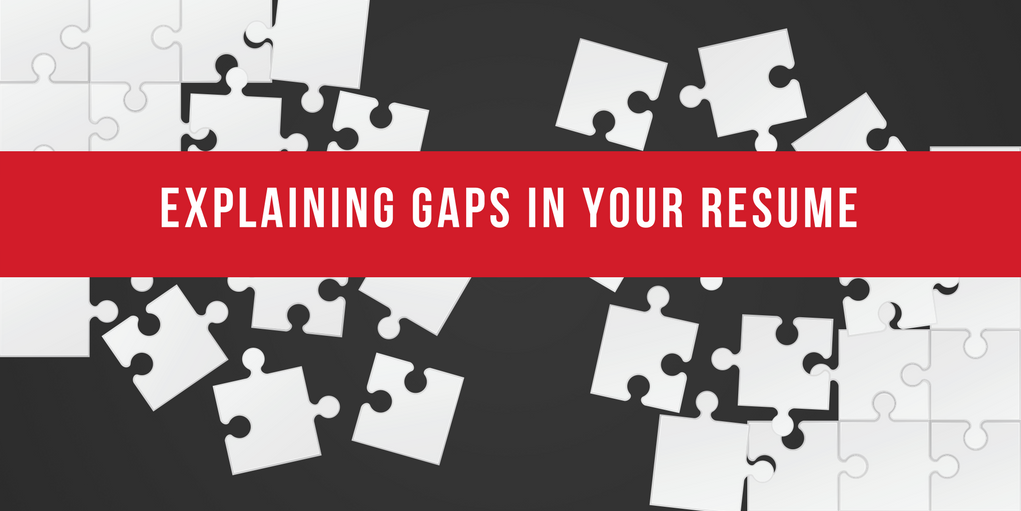;)
How To Explain Gaps In Your Resume
| July 27, 2017| InterviewsTrying to explain a gap in employment history can be a source of anxiety for job seekers. Many aren’t quite sure how to convince hiring managers that despite time gaps between positions, they are still qualified candidates. The good news is that this isn’t necessarily a deal breaker. What matters most is actually how you explain the situation as your response could mean the difference between landing a job or getting passed over. Lucky for you, we’ve got some tips.
Honesty IS Everything
It might seem tempting to try and hide the gaps in your work history. However, this is an immediate red flag to employers who will know something is amiss despite your best attempts to cover up. Honesty is absolutely the best policy. It is better to be upfront about your employment rather than be confronted in the face of a lie – which is almost always immediate grounds for disqualification.
Prepare
You should have an acceptable reason for leaving every job you’ve ever held. Employers will ask you about this, so work on your response ahead of time so you are not caught off-guard. Remember to keep things positive (which we’ll touch on below). Avoid bad mouthing your former supervisor or co-workers. Employers want to feel that you left a position on positive terms, so any negativity can hurt your chances.
Voluntary vs Involuntary
Unemployment happens. Even with the current low rate of unemployment, the job market is still recovering from a recession that spanned nearly a decade. On top of that, there are circumstances in which employees left a position for valid reasons. Whatever they may be, hiring managers can be more understanding than you think.
You must make clear whether your unemployment was voluntary or involuntary because this will dictate the tone of your conversation. Take a look at these two examples:
Ex 1: Sam left her job to be the caretaker to an ill relative for an entire year. She informs the person interviewing her that she stands by her choice to step up and take on this role. Sam also emphasizes that she’s eager to return to work without any restrictions or personal interferences.
Ex 2: Brian’s former employer was forced to downsize. He was let go from his position in this process and discovered that of job hunting had evolved since the last time he sought new employment. It took Brian some time to familiarize himself with the process, and in the meantime, he spent more time with his family and young children. This free time also enabled Brian to gain more self-awareness about his career path and become excited about fully engaging in a new position.
Both of these job seekers found themselves out of work for different reasons but were able to put a positive spin on their situation and reinforce their credibility as candidates. Whatever the circumstance, it is important to be clear about the terms of your unemployment.
Should You List That Hobby on Your Resume?
How did you account for much of your time off? Even if you spent a good chunk of your time watching TV on your couch, employers don’t want to hear that. Instead, they want to know that you made wise use of your time.
Did you hold temporary assignments? Volunteer? Further your education? Travel the world? Blog about your favorite new movies? Sign up for karate classes? All of these things showcase your drive for self-improvement. Let employers know that during your absence from the workplace you were productive.
Stay Positive
A little positivity can go a long way. Emphasize all of the positive things that happened surrounding your gap. If you approach the situation with a good attitude, employers are sure to notice. When explaining the reason for your absence from the workforce, be sure to reaffirm how you positively handled the situation, your personal growth and what you learned along the way.
Even if you were fired from your last position, approaching resume gaps with a positive attitude and healthy mindset will showcase your drive to get back in the swing of things, far outweighing the time you spent unemployed. Gaps in your resume shouldn’t cripple your job search. The trick is knowing how to field these questions and present yourself as a credible candidate.
